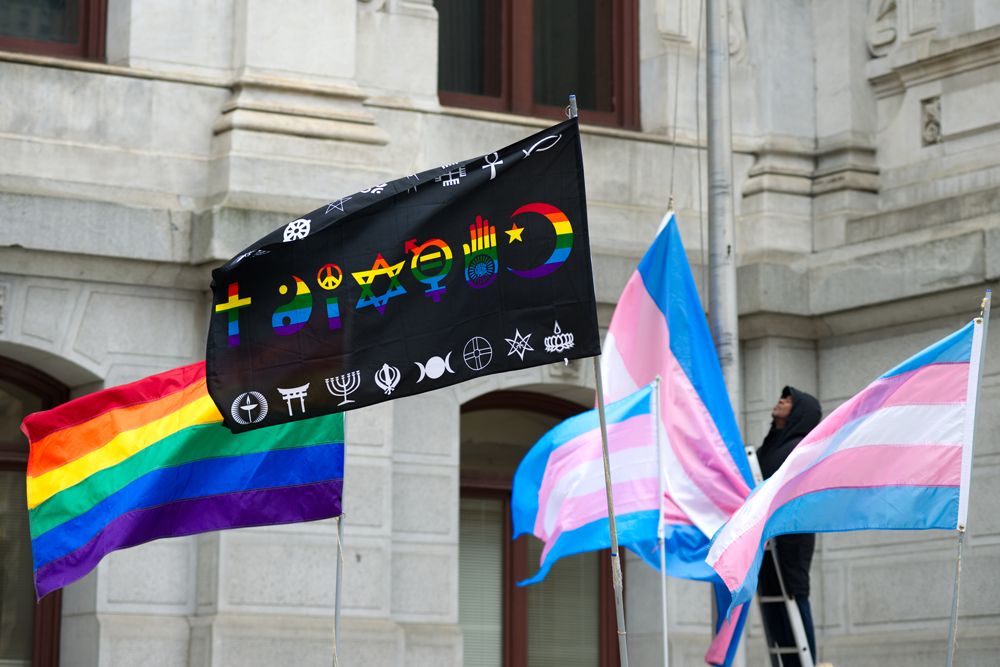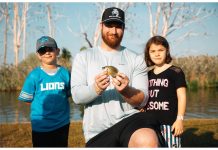 âAllyâ can be a dirty word if you really donât mean it. In the LGBTQ (lesbian, gay, bisexual, transgender, and queer)Ėýcommunity, words help you quickly distinguish between friend or foe â or the ever-popular third option: woefully ignorant.
âAllyâ can be a dirty word if you really donât mean it. In the LGBTQ (lesbian, gay, bisexual, transgender, and queer)Ėýcommunity, words help you quickly distinguish between friend or foe â or the ever-popular third option: woefully ignorant.
âI think the word âallyâ in relation to any marginalized community is a transactional word,â says transgender man of color T.J. Jourian, an assistant professor in the Department of Organizational Leadership at Oakland University.
Itâs insidious! The word is unimposing enough in a sentence, so that when someone says it you, tend to believe them. Similar to the way we casually reveal whether we are right or left-handed.
âBecause why would anyone in their right (or left) mind lie aboutĖýthat?â you might ask yourself. Think again.
LGBTQ organizations across the nation are asking supporters to stand in solidarity with the transgender community in honor of Transgender Awareness Week (Nov. 14-20) and Transgender Day of Remembrance (Nov. 20). But before you stand, take time to sit down and consider what you can do to help all marginalized communities.
âFor me, [ally] often signals someone who wants something for not being a sh**ty person,â Jourian says. But then again, under our current president, everything seems to be up for interpretation these days.
Constitutional freedoms donât extend to standing or sitting when you want during sporting events, title VII, which prohibits employment discrimination based on sex, doesnât apply to transgender individuals, and trans people are too much of a burden to serve in armed services.
âOur military must be focused on decisive and overwhelming victory and cannot be burdened with the tremendous medical costs and disruption that transgender in the military would entail,â said President Trump in July, via Twitter.
As a black gay man from Detroit, I recognize that I have intersectionality â which basically means that I am a member of some oppressed communities (LGBTQ) while in other areas (like being a man) I enjoy privilege.ĖýRecognizing your own privilege can be a painful process â especially if you are in denial. But itâs the first step to determining how you can really help a community.
âTrans and gender-nonconforming (TGNC) people are not a singular cohesive community with consistent needs and wants, so thereâs no magical list of to-dos to accomplish,â Jourian explains. âI would want folks to first consider what it means to âhelpâ an entire community.â
As one of the largest law reform agencies in the country, the American Civil Liberties Union (ACLU) relies on a grassroots approach when advocating about issues that impact marginalized communities. By partnering with existing organizations, those afflicted are granted access to larger audiences in which to tell their stories.
The ACLU of Michigan recently took this approach to bring the Flint water crisis to light. And it has been integral in the organizationâs fight to amend the stateâs human rights laws to include sexual orientation and gender identity, explains Executive Director Kary Moss.
âWe ran into a big wall with legislatures on gender identity and realized that very few had met, to the best of their knowledge, a transgender person,â she says. Following this, the ACLU created its Transgender Advocacy Project for trans people and managed by trans people, to assist with advocacy in Lansing and increase trans visibility.
In the months after the 2016 presidential election, some 40,000 people signed up as ACLU members. The outpour signaled peopleâs eagerness to âdo somethingâ about the direction our country is headed.
But itâs important to consider that all actions have consequences. One such example is the spike in violence against transgender people after the Supreme Courtâs decision on marriage equality.
âBefore you go and say you want to have an event, you need to understand what we have already done as a community. What you do affects us,â says Lilianna Angel Reyes,Ėýa trans Latina woman who helped found the Trans Sistas of Color Project and is a program director at Affirmations in Ferndale. âSo you go have your rally, but I still have to live in the consequences of this when you go back home.â
The best way to help: Ask whatâs needed.ĖýâThink about what you could bring to the table,â Reyes says. âI think itâs also important to think about âĶ what your motivations are.â
Even good intentions can miss the mark and create more problems than peace. This year, the restaurant Takoi changed its name from Katoi after a Detroit Metro Times article outlined concerns the word used was a Thai slur for transgender people. (The Urban Dictionary defines Takoi as an awkward moment when strangers attempt to pass each other on the street.) The conversation stoked a social media firestorm, accusing the restaurant owners of cultural appropriation.
It was a learning experience for everyone involved, says Takoi co-owner Courtney Henriette. âThe name came from a place of wanting to go beyond gender norms,â she explains. âThis was one hate storm we didnât want to be in the middle of.â
The restaurant has transgender people on staff and is known to be an inclusive culinary experience. âA lot of people feel safe with us in ways that they donât feel in a lot of other different places,â she says. But in the end, Henriette considers the whole experience as part of professional and personal growing pains. âI would have never known that if this moment didnât exist,â she says.
The restaurant, which has gone through several iterations, has always been an ever-evolving experience. And if it comes to it, Henrietteâs not above changing the name again.
âWords are fluid. For us, people are more important than a word,â she says. âA word can be changed.â
In short, to be an ally is to believe that people can also be changed.

|
| Ėý |
|








